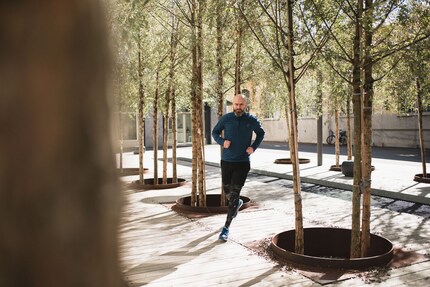
Background information
Who will win the fight for our data?
by Patrick Bardelli

Activity trackers predict mortality risk more accurately than surveys and other methods commonly used by doctors. This is the result of a new study.
Predicting a person's risk of dying as accurately as possible helps to prolong their life. As a rule, doctors' estimates are based on lifestyle habits such as smoking and alcohol consumption as well as health factors such as a history of cancer or heart disease.
However, new findings published in the Journal of Gerontology: Medical Sciences suggest that wearable activity trackers may provide more reliable predictions.
Researchers at John Hopkins Medicine in Baltimore investigated the relationship between physical activity and mortality risk.
"We were interested in looking at physical activity and how it can predict mortality, since activity is a factor that is modifiable, unlike age or genetics," says Professor Ciprian Crainiceanu, Ph.D. of the Johns Hopkins Bloomberg School of Public Health.
His work is not the first to make such a connection, but his team says the findings could be some of the first to provide concrete evidence that wearable technology is better at predicting a person's mortality risk than other means.
More data = better predictions? There are also interesting views from an ETH professor on this topic:
The study's data set comes from the National Health and Nutrition Examination Survey, which was conducted in the USA in 2003 - 2004 and 2005 - 2006. Almost 3,000 adults between the ages of 50 and 84 took part in the study. It analysed more than 30 predictors of five-year all-cause mortality. Survey responses, medical records and laboratory results were used.

Physical activity comprised 20 of these predictors, including total activity, time spent in moderate to vigorous physical activity, and time without exercise. Participants in the study wore an activity tracker on their waist for seven consecutive days. They were instructed to only remove the device when showering or sleeping. The research team was able to use the data to categorise the factors that best predicted the risk of death over the next five years.
From radio journalist to product tester and storyteller, jogger to gravel bike novice and fitness enthusiast with barbells and dumbbells. I'm excited to see where the journey'll take me next.
From the latest iPhone to the return of 80s fashion. The editorial team will help you make sense of it all.
Show all